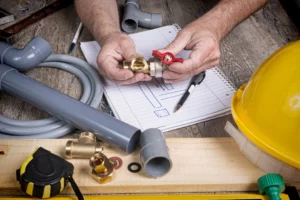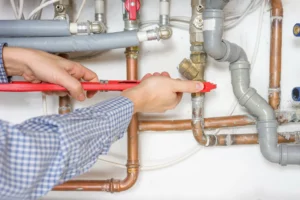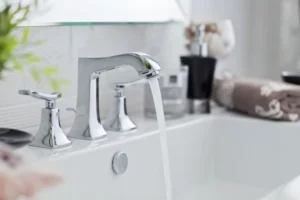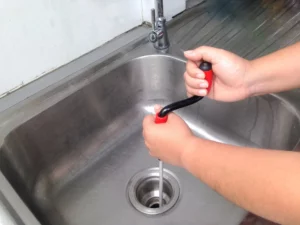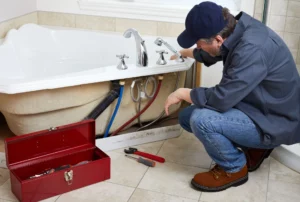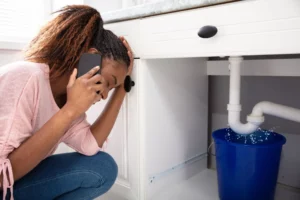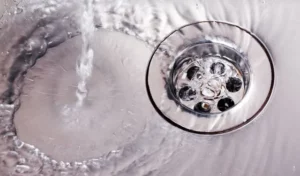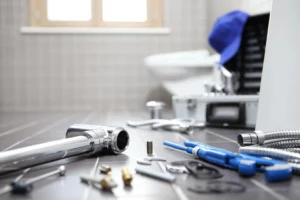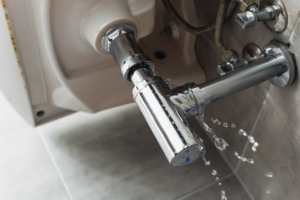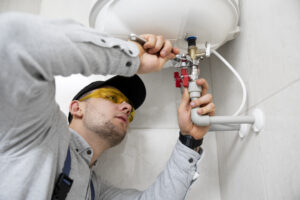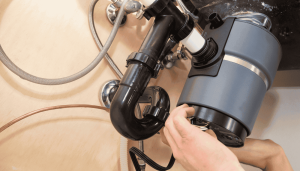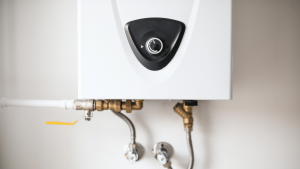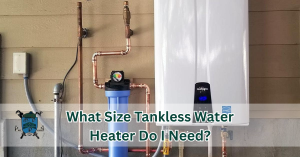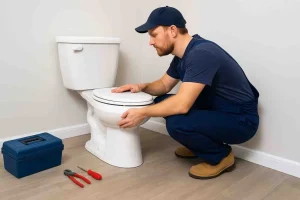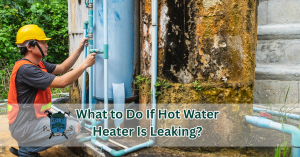Your water heater is one of the hardest-working appliances in your home, quietly providing the comfort of hot showers and clean dishes. But have you ever wondered, can a hot water heater explode? It’s a question that might sound extreme—but it’s not without reason. When heat, pressure, and water combine in a sealed heating container, even a small fault can create dangerous conditions.
At Mad Pipers Plumbing, we believe prevention is power. Understanding the warning signs, knowing how to handle heater pressure, and performing regular maintenance can protect your home from potential water heater explosions. Let’s dive deep into what causes a heater to explode—and how you can keep your family safe.
Can a Hot Water Heater Explode? The Truth Behind the Concern
Yes—a hot water heater can explode under certain conditions. Though rare, water heater explosions occur when pressure builds inside the tank faster than the pressure relief valve can release it. The tank essentially becomes a pressurized bomb if safety mechanisms fail.
Common causes include:
- A faulty pressure relief valve
- Excessive water pressure or overheating
- Sediment buildup that traps heat inside the tank
- Poor heater maintenance or DIY installation mistakes
That’s why Mad Pipers Plumbing always recommends professional inspection and regular servicing of all water heaters. Small signs—like leaks, strange noises, or rust—can warn you long before disaster strikes.
Science Behind a Heater Explode: Heat, Pressure, and Containment
Your water heater is essentially a closed heating container that turns cold water into hot using gas or electricity. As water heats, it expands—raising internal pressure levels. Normally, this pressure escapes safely through a pressure relief valve.
But when that valve malfunctions or gets blocked, the trapped steam increases heater pressure beyond safe limits. Eventually, the tank can rupture or explode, sending scalding water and metal fragments flying.
At Mad Pipers Plumbing, our certified technicians always test pressure relief valves during maintenance visits to ensure they’re functioning correctly. It’s a small step that prevents massive damage.
Warning Signs of a Heater Leaking or Overheating
A heater leaking isn’t just a nuisance—it’s a red flag. Leaks often indicate internal corrosion, cracks, or failing valves. When leaks occur near the bottom of the tank, the problem may be advanced.
Other warning signs include:
- Water puddles near the heater
- Rumbling or popping noises (caused by sediment buildup)
- Discolored or rusty water
- Irregular heating or inconsistent hot water supply
Mad Pipers Plumbing advises homeowners never to ignore these warning signals. Early detection and heater repair can save you from costly replacements—or worse, dangerous explosions.
Common Causes of Heater Explosions You Shouldn’t Ignore
Several underlying problems can make your water heater unsafe:
- Pressure Relief Valve Failure: The number one culprit behind heater explosions.
- Thermostat Malfunction: Overheats water beyond safe pressure levels.
- Excess Sediment: Prevents heat from escaping properly.
- Corrosion: Weakens the tank walls and creates cracks.
- Poor Installation: Incorrect valve or hvac connections can lead to pressure relief failure.
At Mad Pipers Plumbing, our technicians follow strict safety checks during every installation and repair, ensuring your heater operates at optimal pressure and temperature.
What to Do If Your Water Heater Is Leaking or Hissing?
If you notice your heater leaking or making a hissing sound, act immediately. These are often signs that pressure or temperature is climbing dangerously high.
Follow these quick steps:
- Turn off the power (electric or gas).
- Shut off the water supply to stop further filling.
- Do not attempt DIY repair—this can worsen the issue.
- Call Mad Pipers Plumbing right away for emergency heater repair service.
Our team is equipped to handle any water heater issue—whether it’s a minor valve problem or a complete tank replacement.
Preventing a Heater Explode: Maintenance and Safety Tips
Prevention starts with consistent care. Regular maintenance ensures your heater remains in safe operating condition. Mad Pipers Plumbing recommends:
- Flushing the tank every 6-12 months to remove sediment buildup.
- Testing the pressure relief valve twice a year.
- Monitoring water pressure levels in your plumbing system.
- Inspecting heating elements and thermostats for wear.
Our professional maintenance plans cover everything—from valve testing to hvac system checks—keeping your water heaters safe and efficient year-round.
Understanding the Role of the Pressure Relief Valve
Pressure relief valve is your heater’s most crucial safety feature. It automatically releases excess pressure when water inside the tank gets too hot. Without it, even a small malfunction could lead to catastrophic heater explosions.
At Mad Pipers Plumbing, we not only replace faulty relief valves but also ensure your plumbing system supports balanced pressure levels. This combination prevents heating issues and improves system longevity.
When to Call for Professional Heater Repair?
Many homeowners underestimate the importance of timely heater repair. Waiting too long can turn a small valve issue into a full-blown tank rupture.
If you notice unusual noises, inconsistent hot water, or the pressure relief valve dripping constantly, it’s time to call Mad Pipers Plumbing. Our experts diagnose the root cause—whether it’s heater pressure, corrosion, or a failing thermostat—and perform lasting repairs.
Professional Installation and Inspection Services by Mad Pipers Plumbing
Even the most advanced water heaters can become dangerous if not installed correctly. Improper installation can cause loose fittings, blocked valves, and erratic pressure control.
That’s why every Mad Pipers Plumbing installation includes a full pressure relief and valve safety test. Our licensed technicians ensure all heating components are connected correctly and running efficiently.
Whether you’re replacing an old unit or upgrading your home system, trust Mad Pipers Plumbing for reliable, safe, and code-compliant installation.
Early Warning Signs & Inspection Checklist
What to look/smell/hear/see:
- Hissing or rumbling noises
- Visible leaks or pooling water
- Corrosion, rust, or bulging tank
- Discolored water or metallic taste
- Frequent pilot outages or burner problems (gas)
- Water temperature suddenly much hotter than setpoint
- The T&P valve leaking or weeping
- Sulfur/rotten egg smell (possible gas/contamination)
Simple DIY checks (safe, non-invasive):
- Inspect around base for moisture
- Look at T&P discharge pipe for recent discharge marks
- Check thermostat setting (recommended: 120°F / 49°C — discuss tradeoffs)
- Smell for gas (if suspected, do not use electronics; leave immediately and call gas company)
Protect Your Home with Routine Maintenance by Mad Pipers Plumbing
A well-maintained water heater not only prevents explosions but also saves energy and extends the life of your tank. Mad Pipers Plumbing offers tailored maintenance programs designed to monitor pressure, test relief valves, and clean heating elements.
With regular inspections, our team ensures your heater performs safely and efficiently—so you never have to ask, “Can a hot water heater explode?” again.
Stay Safe, Stay Warm—Trust Mad Pipers Plumbing
Your comfort shouldn’t come with risk. If you’ve noticed leaks, odd noises, or temperature fluctuations, it’s time to take action. Let Mad Pipers Plumbing handle your heater repair, installation, and maintenance with unmatched expertise. From preventing pressure issues to replacing faulty valves, we’re the trusted professionals who keep your home safe and your water hot.



